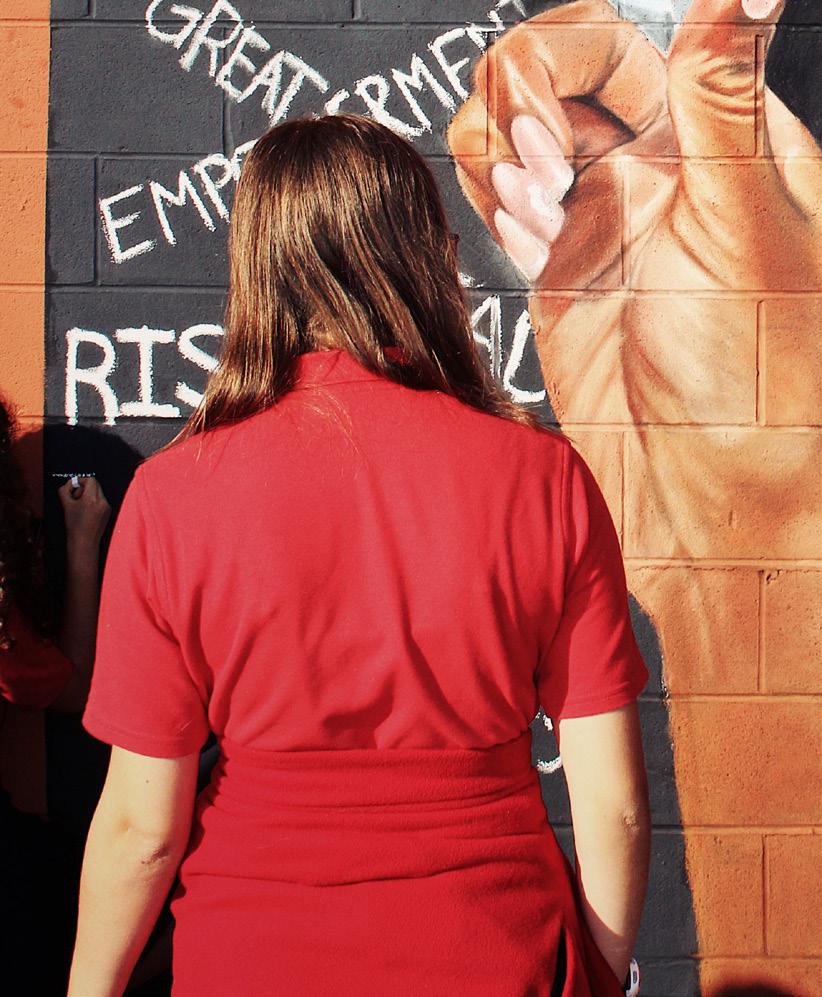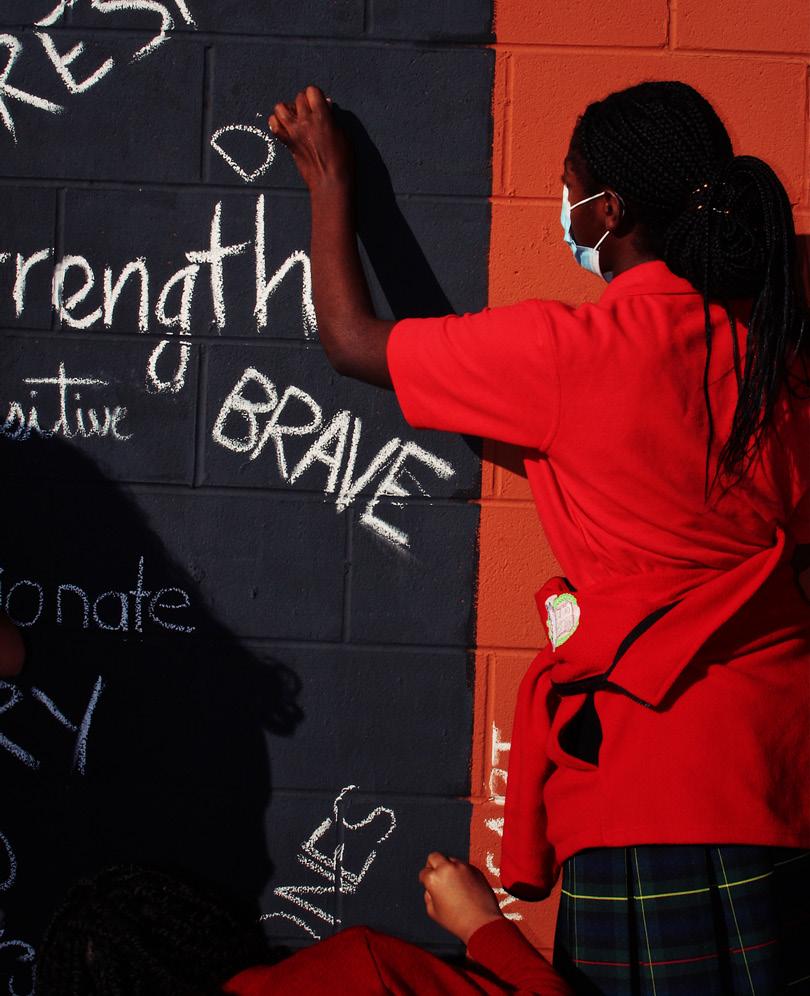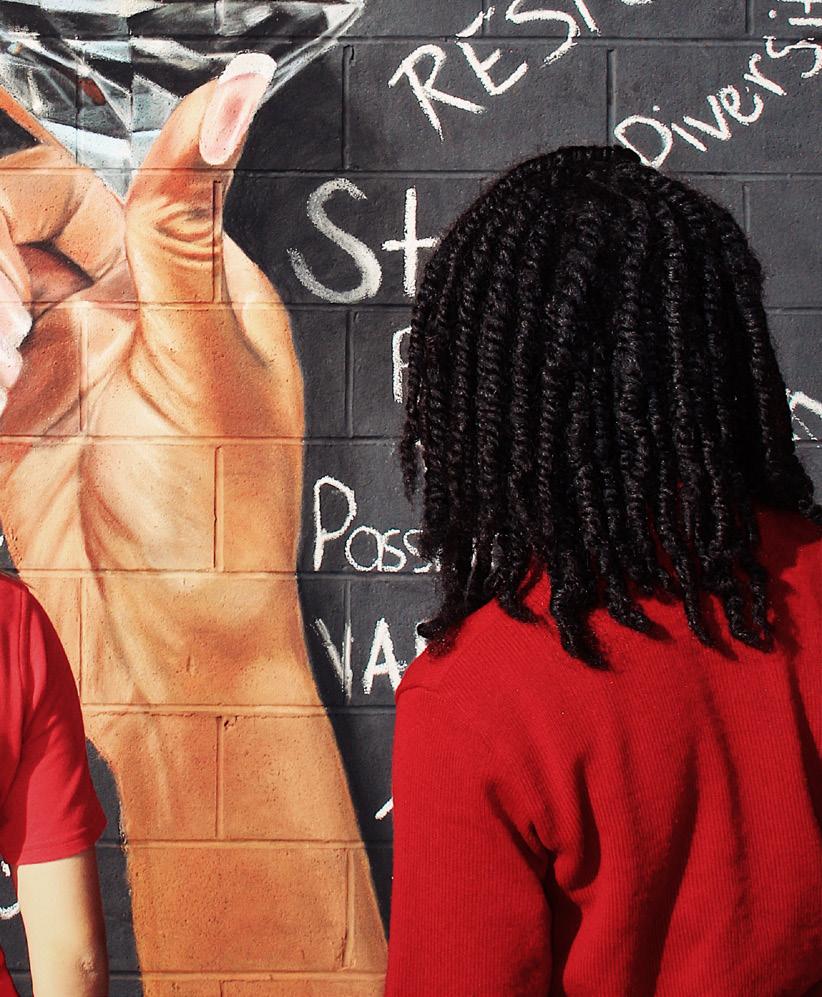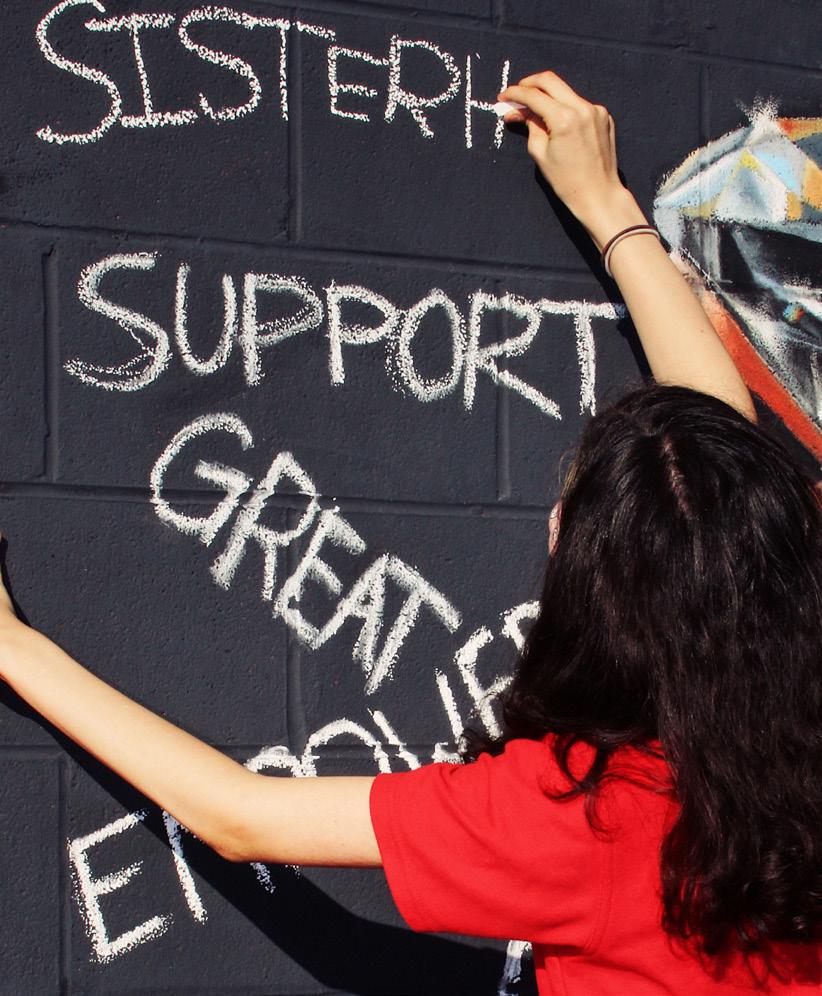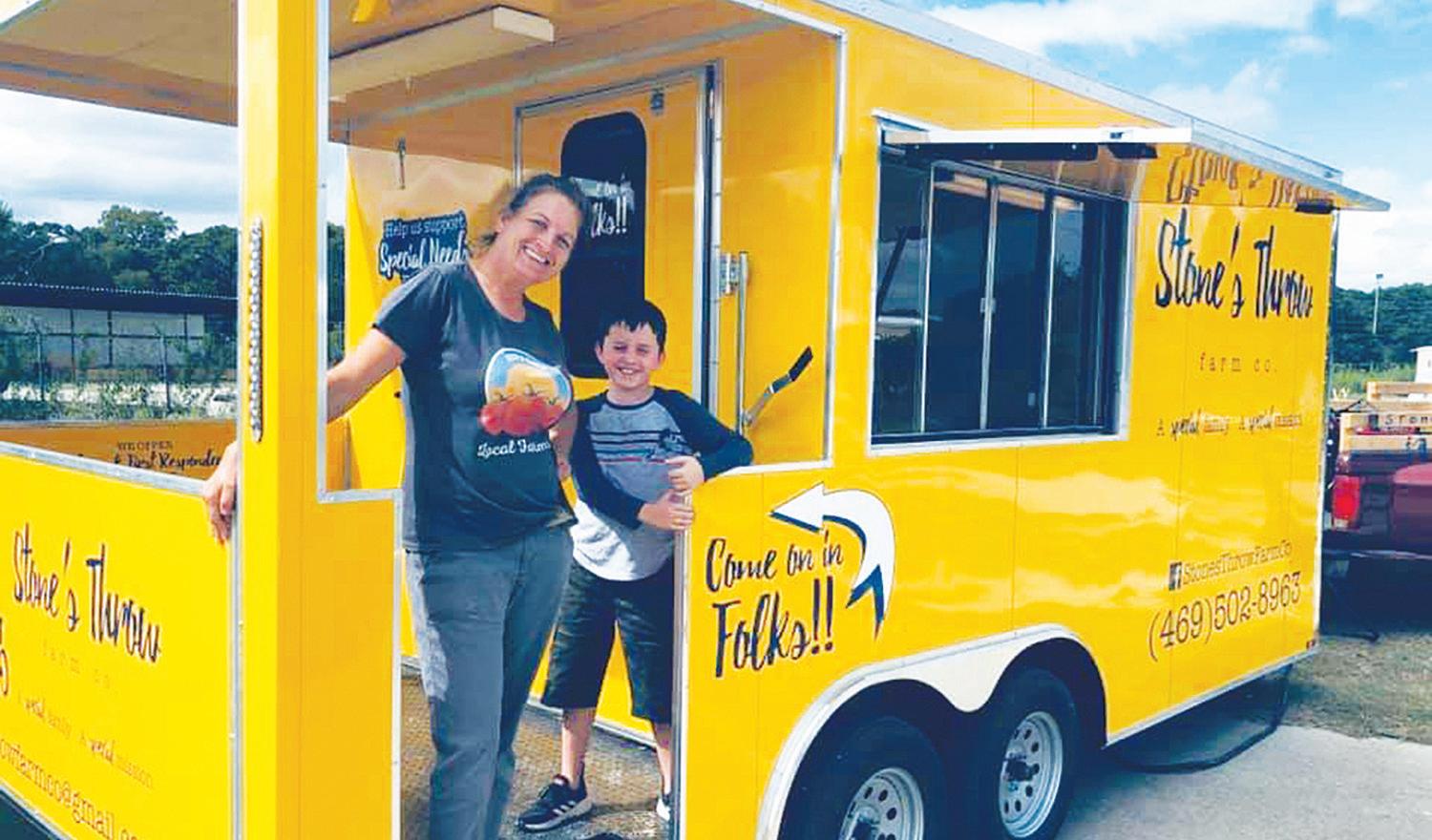
6 minute read
STONE’S THROW FARM CO.
from OTK Issue 02
by One To Know
Stone’s Throw From Home
A farm for adults with intellectual and developmental disabilities where they get dirty and get outside, a place to belong
Advertisement
By Celestina Blok
For Trish Stone, farming is more than growing produce — it’s planting a seed for something good for young adults with special needs.
Trish owns Stone’s Throw Farm Co., which operates on 2 acres in Southwest Fort Worth, producing vegetable crops, eggs, pickles and jams. The venture started about six years ago when Trish’s gardening hobby “honestly got out of control,” and folks began requesting to buy from her bounty. Soon, she was selling out at farmers markets and eventually quit her longtime career in the car sales industry to keep up with demand.
But with three teenage sons, two of which have special needs, Trish knew her budding business was bound for something bigger. “We thought if we have this farm, there’ll always be a place for them to work,” Trish says. “Once they leave high school, there are just not a lot of opportunities for folks with special needs who are just maybe short of getting a parttime job somewhere.”
Trish’s 15-year-old son, Jackson, has autism, and her 12-year-old son, Cru, has cystic fibrosis. Between therapy visits and doctor’s appointments, there may one day be challenges for them in finding work, she says. “We thought if we can do this for them, who else can we help?”
Now with a nonprofit organization status — official since June — Trish has the green light to continue her business with a mission of helping others with challenges like those of her sons. Her husband, Jack, also left his full-time job last year to partner with her in that mission.
“We provide work opportunities for young adults with special needs. That includes kitchen work, working at the farm stand making change, greeting customers and packing orders, and working on the farm by planting, weeding, cultivating, harvesting, cleaning and feeding animals,” she says. “We have seven interns already. Some are working toward being paid, and for some, it’s a place to hang out, make friends, and get outside and get dirty.”
Clockwise Starting with Top Left: Trish and Cru, youngest son, at a neighborhood; Kaylea and customer at Clearfork Farmer’s Market; Stone Family; Trish and gnarly carrots we grow in our clay soil; Jack and Trish at a recent farmer’s market
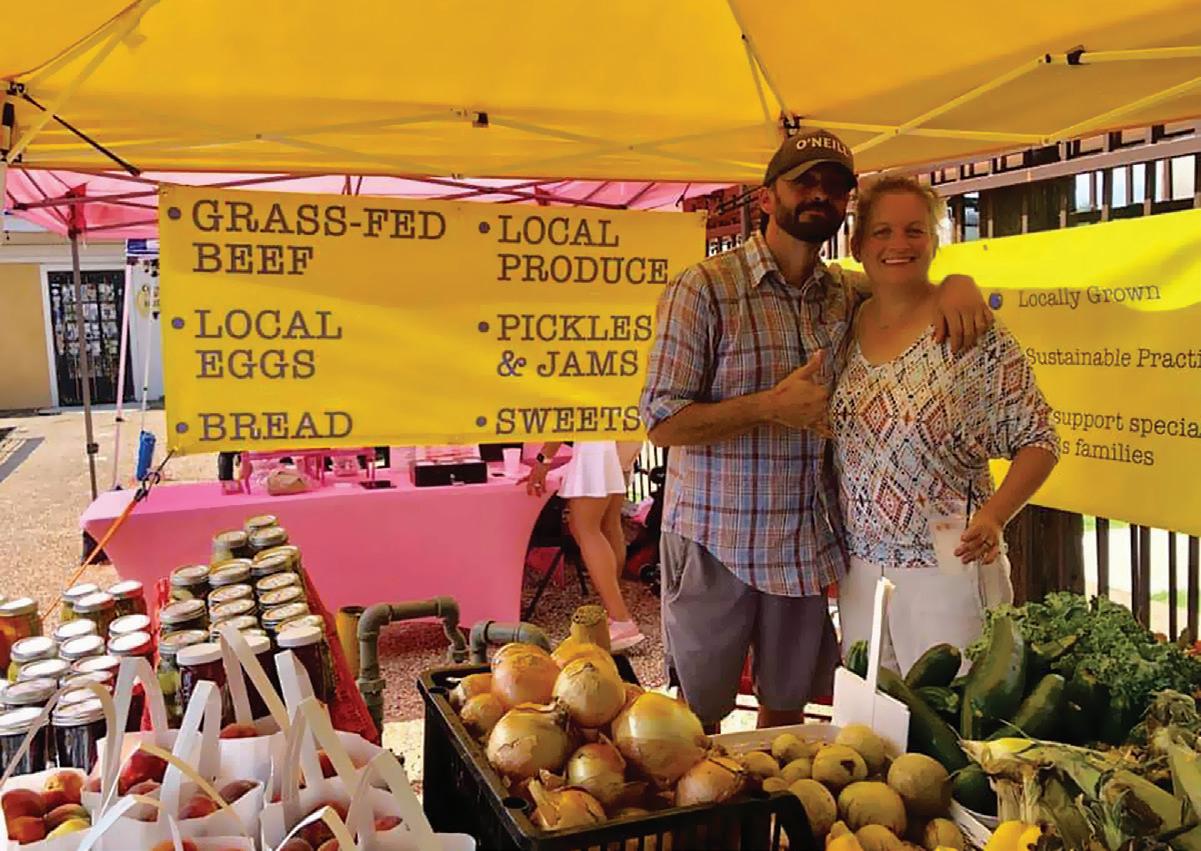
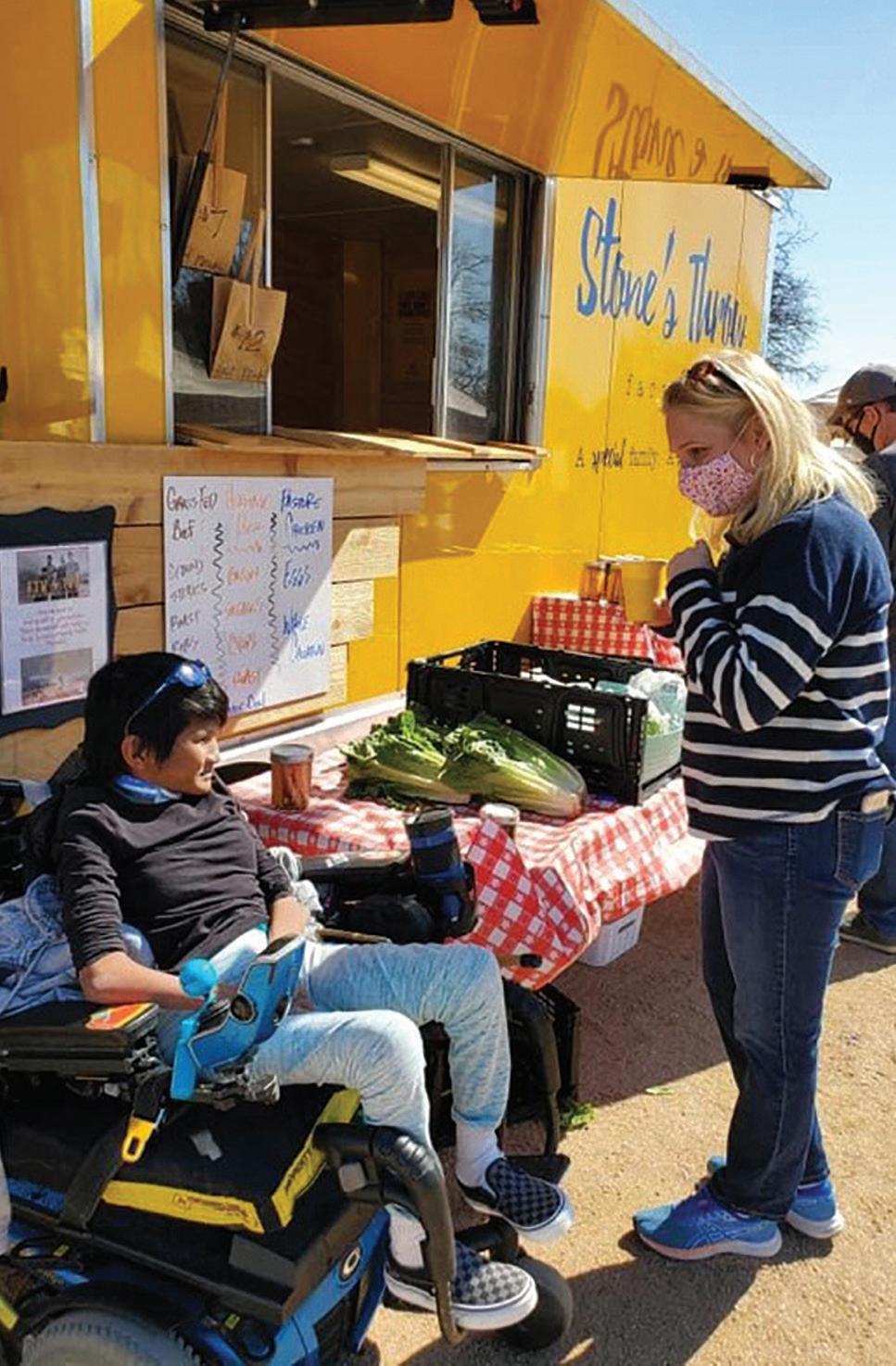
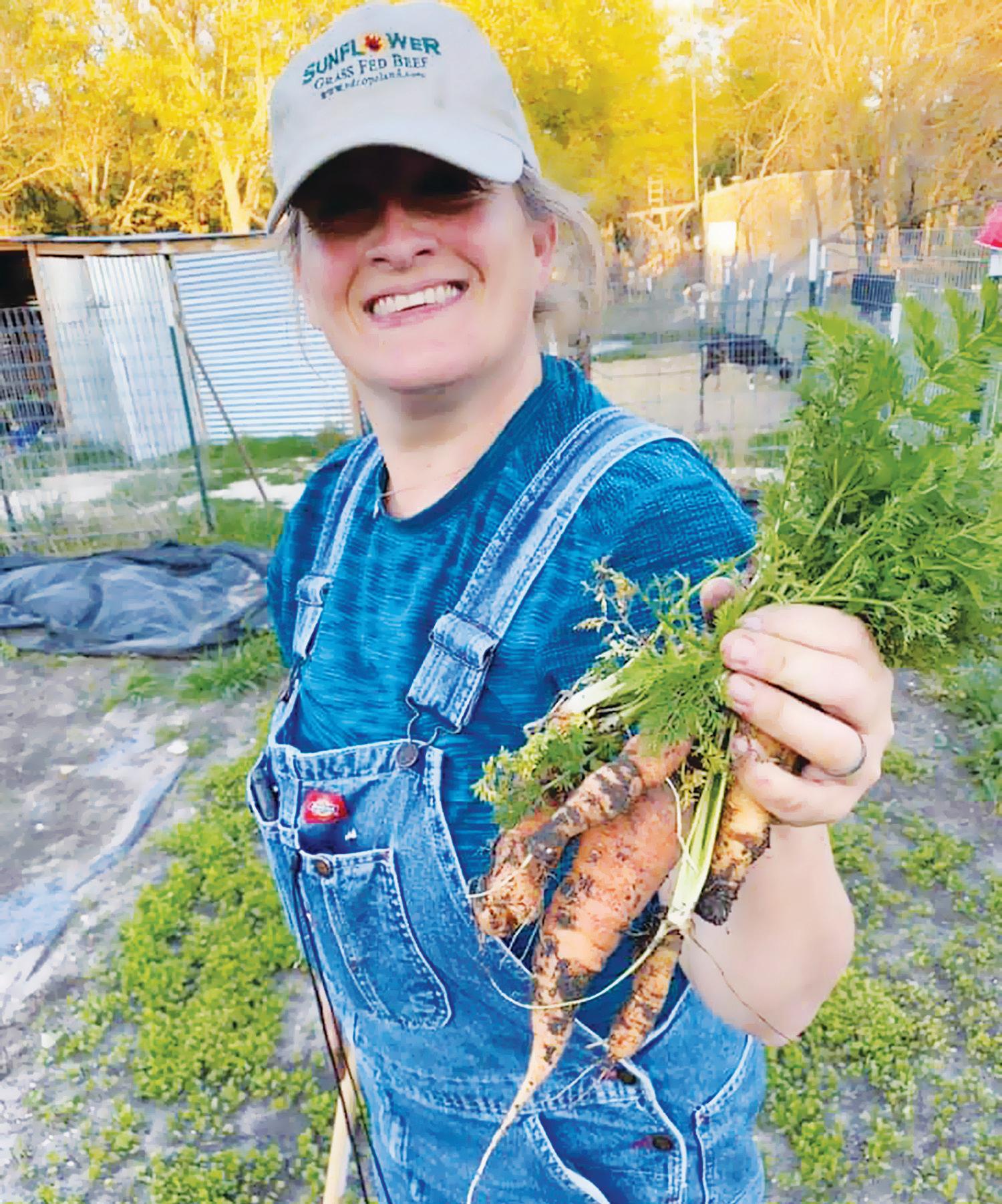
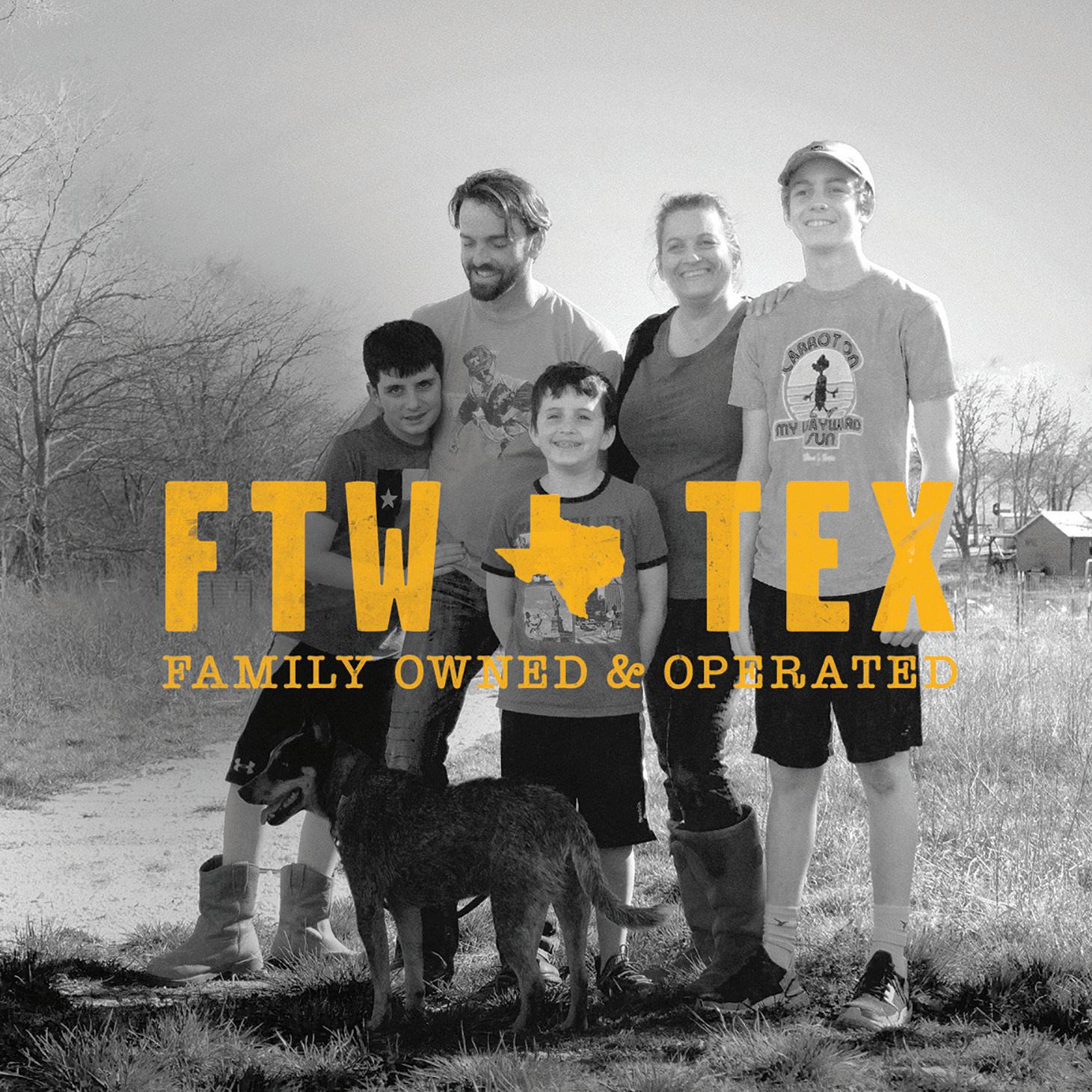
Interviews are called “meet and greets,” Trish says, and they provide an opportunity to meet applicants, their parents or guardians, and to assess skill level. Getting outside, getting exercise, sunshine and vitamin D, and learning where food comes from are all life skills Trish thought would be most beneficial for her new employees. But it’s the development of crucial social skills, she says, that’s been the most apparent. “A lot of them might go to an adult program where they see the same people every day, or they hang out with their siblings, parents and grandparents and that’s it,” she says. “This is something completely new, and it pushes them.”
One intern doesn’t enjoy getting dirty, whether it’s tracking soil on his shoes or wearing dirty gardening gloves. But he loves being out there watching Trish work. “It’s moral support, and that’s OK. If someone wants to come out here and help me harvest, that’s great. If someone wants to come out and watch me harvest and just be out in nature, that’s good, too.”
Another intern loves to hug. “He would hug me for two hours if he could,” she says. “He’s just a hugger.” But Trish helped him understand that not everyone may be open to hugs from a stranger, much less lengthy ones, she says.
“And that’s just socially learning how to be out in the world,” she says.
Clockwise Starting with Top Left: Trish and first farm truck; Kaylea Lambert at Clearfork Farmer’s Market; Our mobile farmstand; Trish and fall green tomato
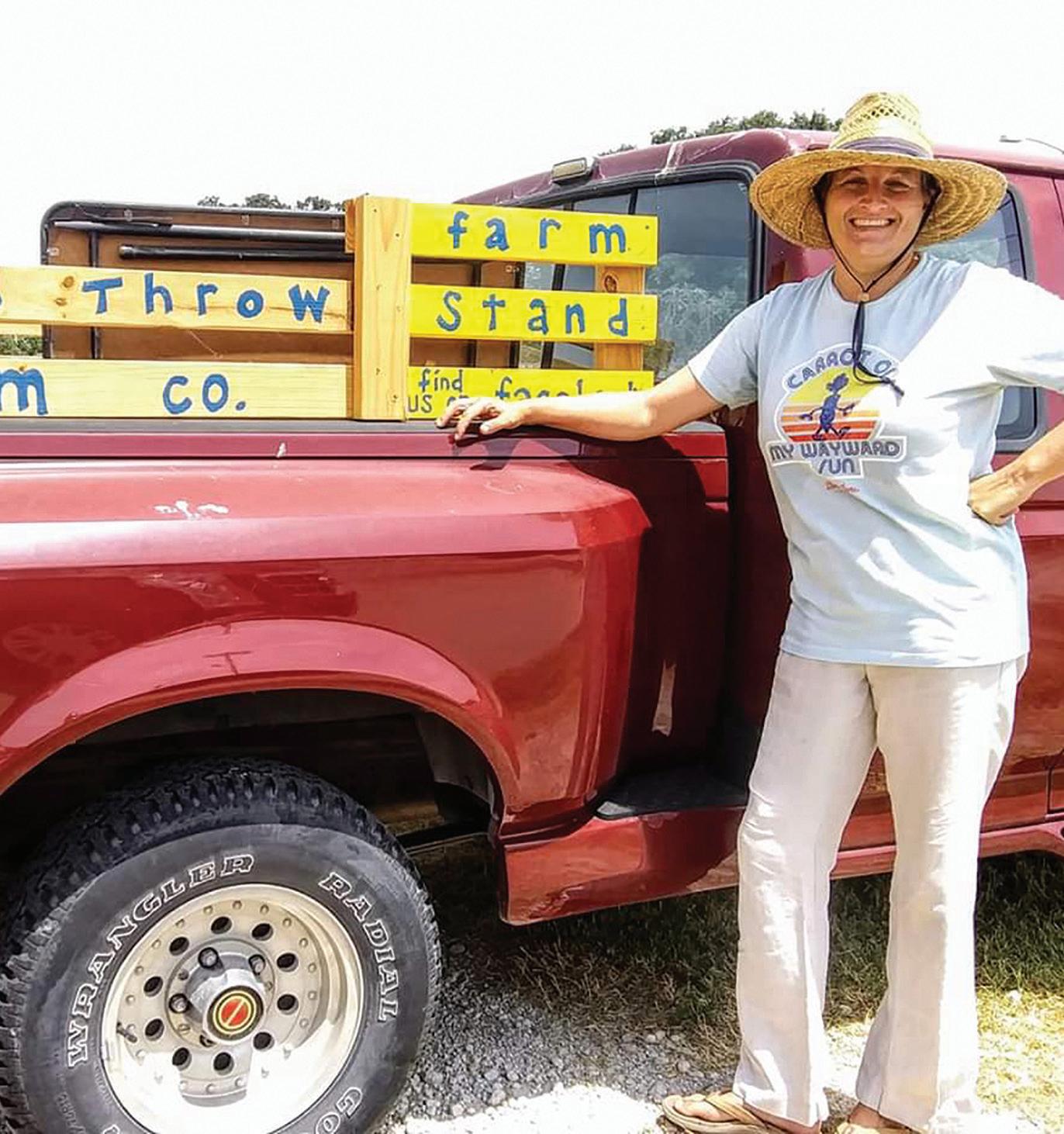
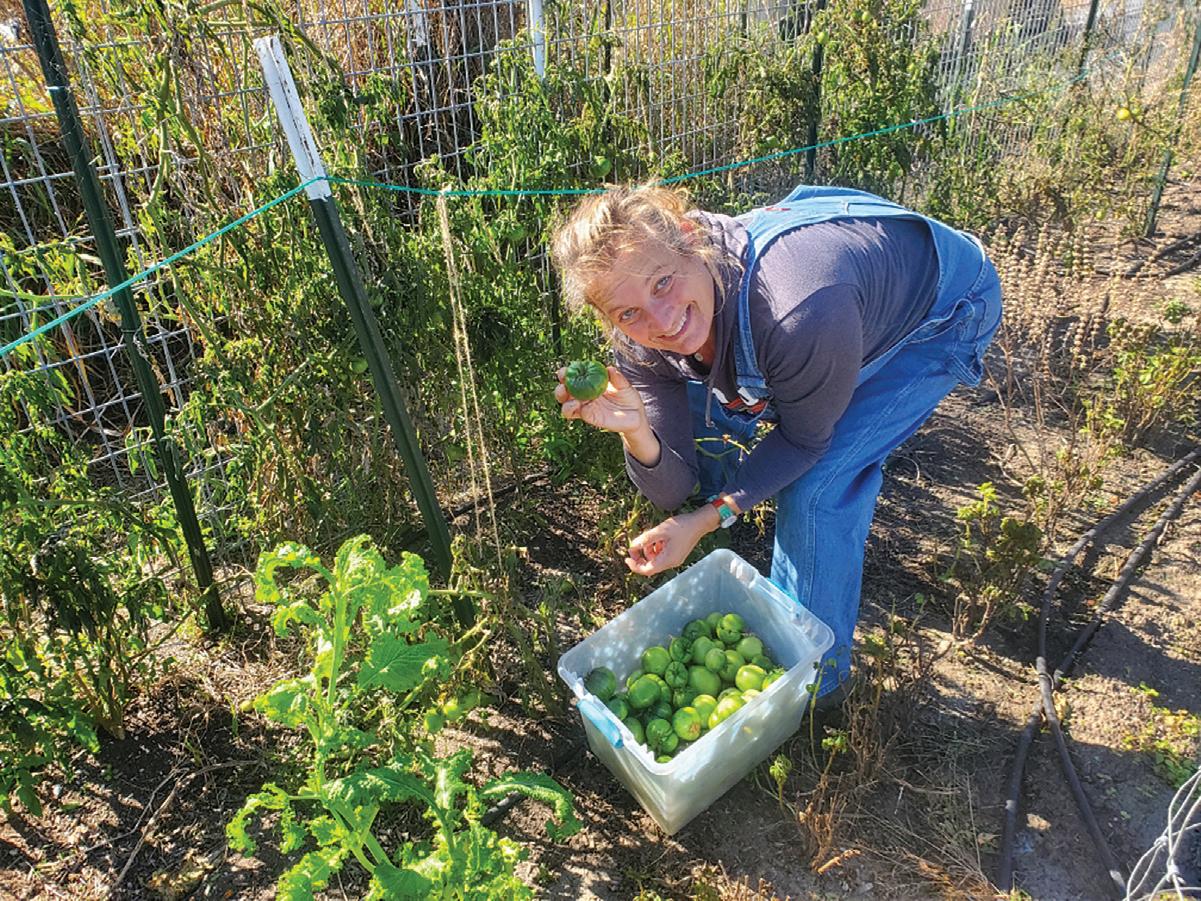
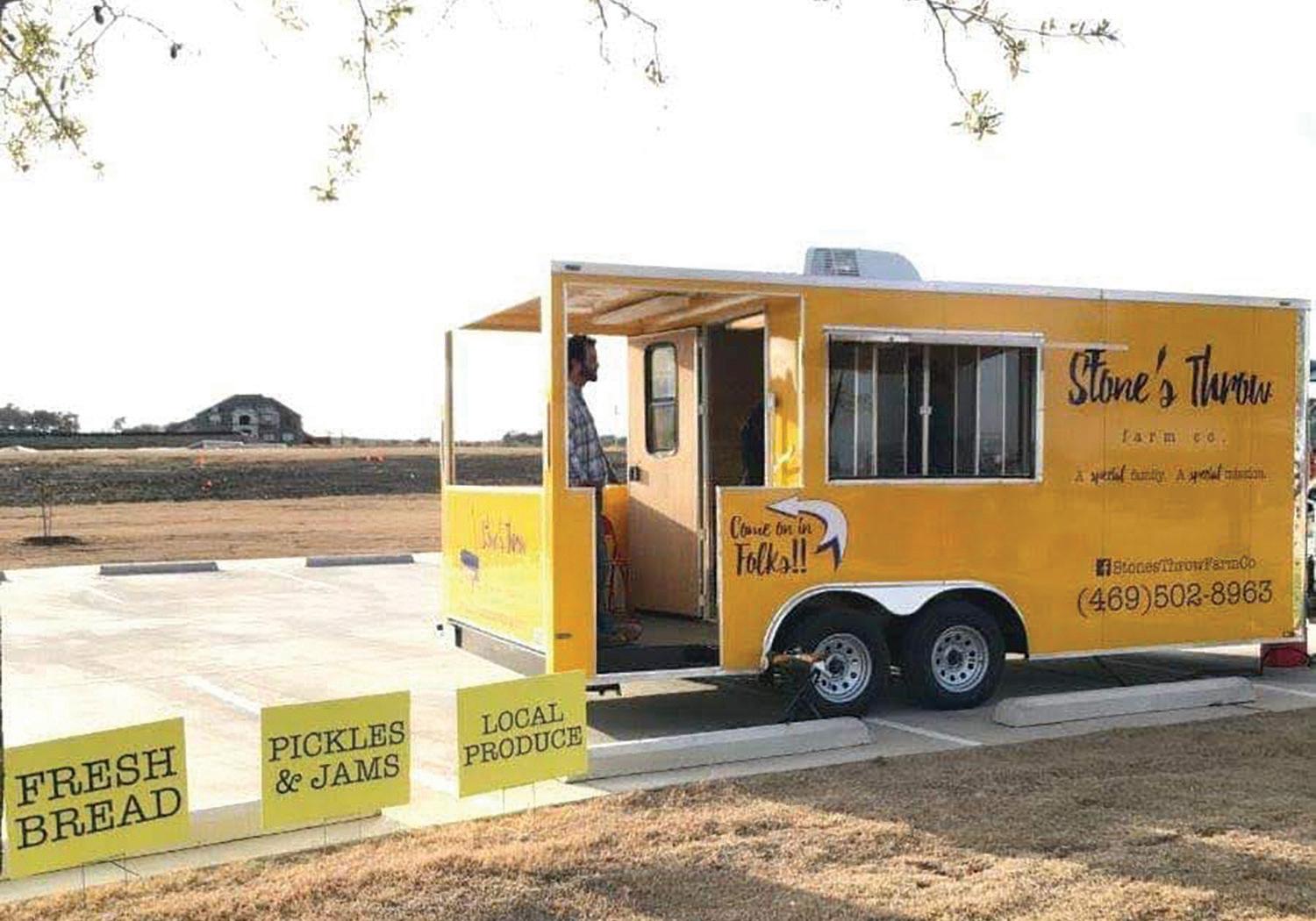
“There needs to be more options for these folks besides therapy — places for them to belong and contribute and make friends,” Trish Stone says.
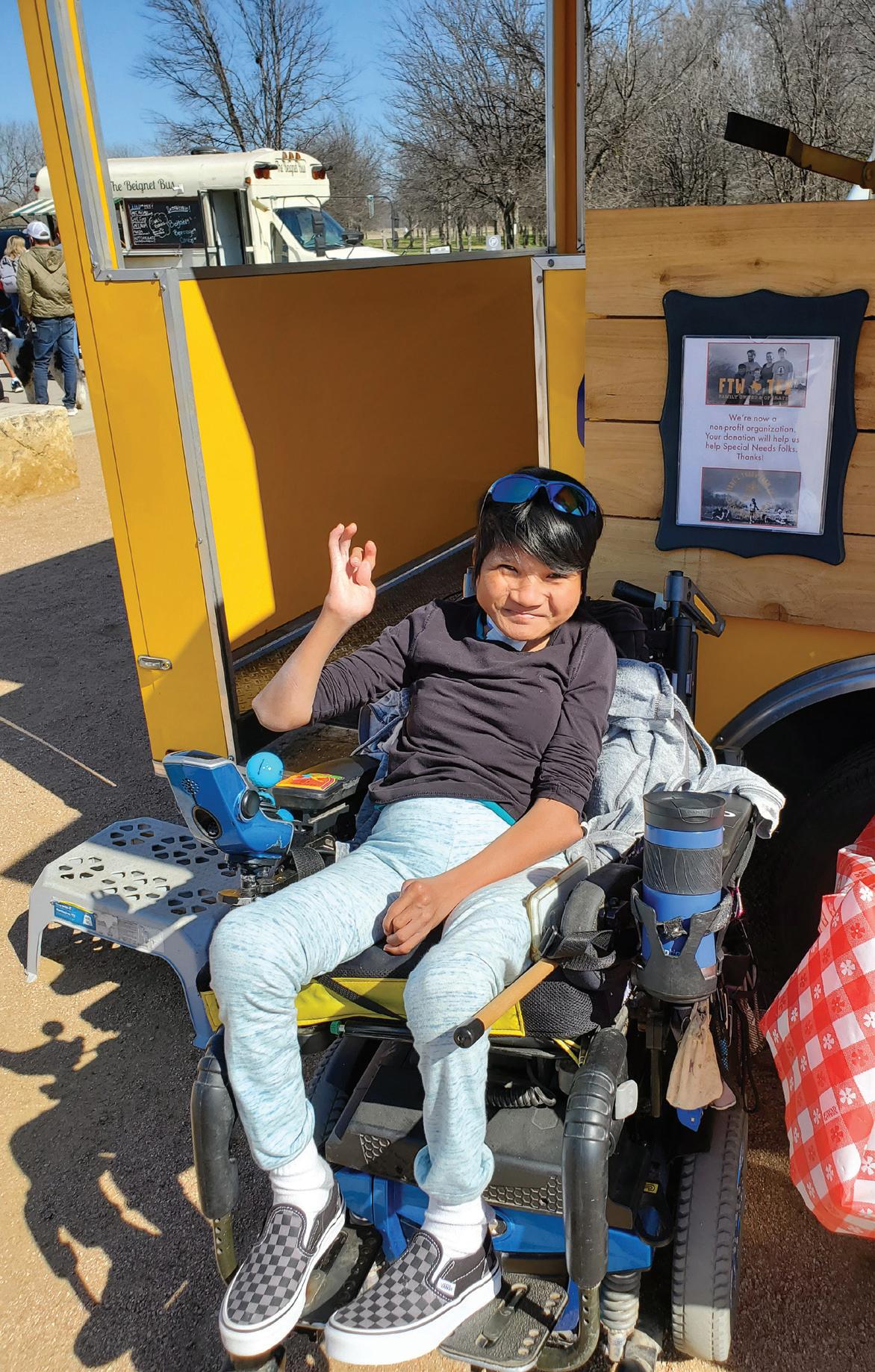
As Trish works to navigate the nonprofit world while still maintaining a profitable family business, she’s not looking to expand her 2-acre farm anytime soon. Instead, finding funding and more volunteers to help supervise interns is a top priority, which will in turn allow for more internship shifts. “Someone may need guidance on packing pickles or jarring jams. Others might be able to do it alone,” she says.
Kaylea Lambert, who works as Stone’s cashier, has a condition called arthrogryposis. She’s paralyzed from the chest down and uses a motorized wheelchair. “It’s good for me to learn how to work with people and how to communicate,” Kaylea says, adding that at first, she wasn’t comfortable getting very close to customers.
“But now I’m like, ‘It’s all right,’” she says. “I’ve gotten to know customers, and some of them know me, too, which is awesome.” Initially, Kaylea’s mother wasn’t sure how she could help. Even those closest to someone with special needs or a disability might not realize that person’s capability. Trish says she now can’t run her farm stand without her.
Kaylea is now one of the farm’s most vital fixtures, and Trish says she couldn’t run her farm stands without her.
Customers can support A Stone’s Throw by visiting one of its many farm-stand events throughout the week, including Saturday mornings at Clearfork Farmers Market.
Poem and Photo by Brenda Ciardiello @brendaciardiello.art

“the quiet overstory”
Subscribe
6 ISSUES A YEAR A new Fort Worth publication for women.

SCAN THE QR CODE and subscribe today
ONETOKNOWMAGAZINE.COM
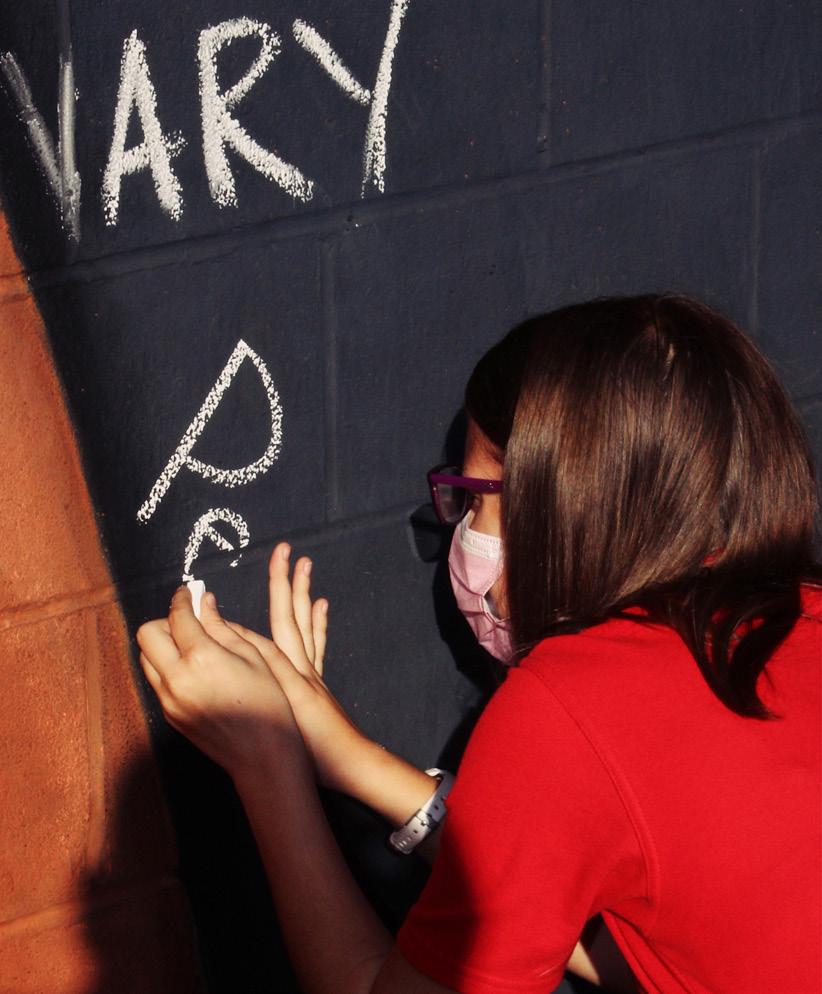
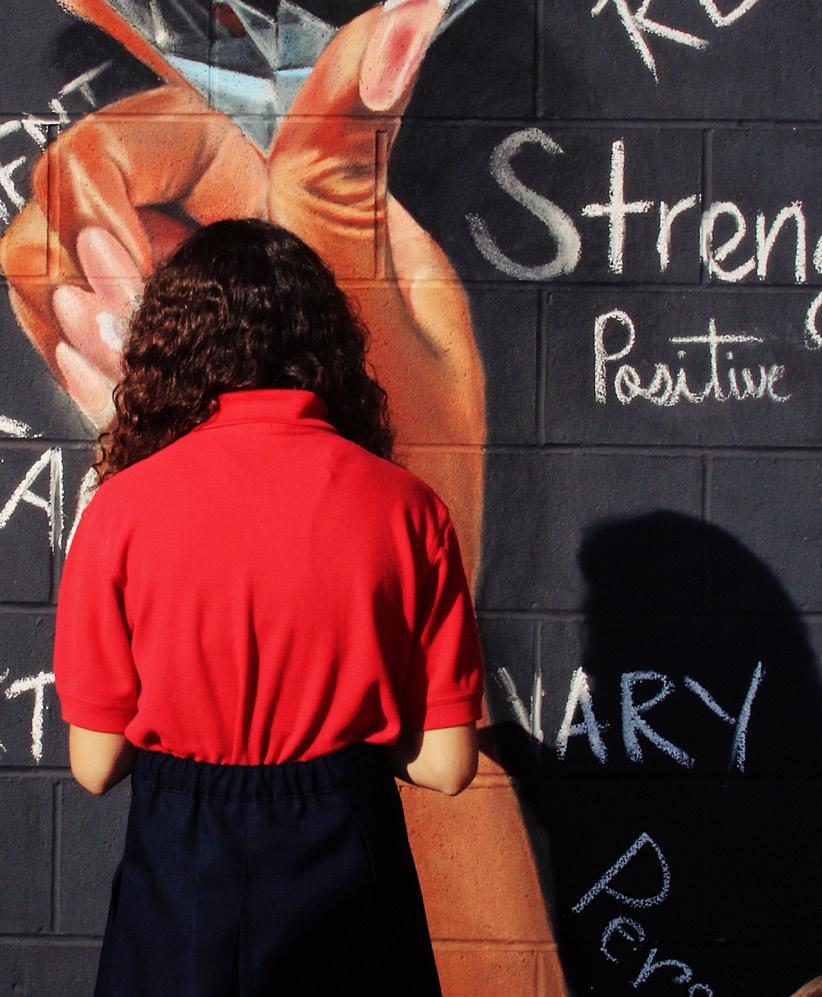
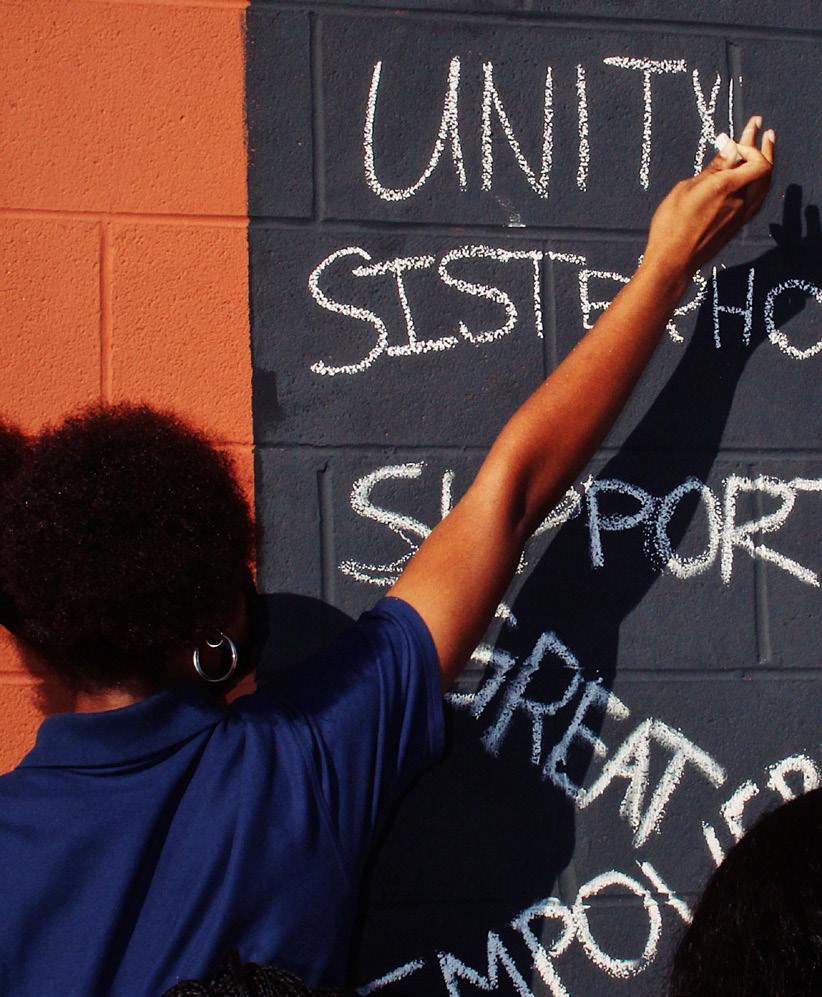

– TAMARA ALBURY
Principal of the Fort Worth Young Women's Leadership Academy
